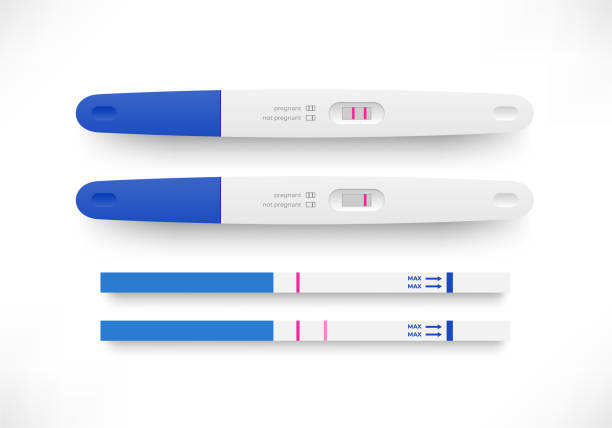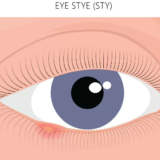An Ultimate Guide to Taking a Pregnancy Test

Have you missed your period and thinking that you are pregnant? Well, you can be! But there’s a quick way to confirm that. And that is – by taking a pregnancy test. Today, an over-the-counter (OTC) pregnancy test kit is a hassle-free and effortless option to clear your doubt regarding whether you are pregnant or not. And all it takes peeing on the stick! Now if you are wondering –“when can I take a pregnancy test?” Go through this guide and find answers to all your questions. The guide covers early signs of pregnancy to how a pregnancy test works and everything in between.
Signs That Tell You to Take a Pregnancy Test
Many signs of early pregnancy exist that are easily overlooked by many women. If you misinterpret them anyhow, chances are you won’t opt for a pregnancy test. So, to answer your question – “when can I take a pregnancy test?” here are some signs that tell you to perform the test as soon as possible:
1. If Cramps Occur
No doubt that cramps are common during or before the period, they can occur during implantation as well. If you suffer from cramps before or around your menstrual cycle and they accompany light bleeding or no bleeding, you should go ahead and take an early pregnancy test.
2. You’ve Just Missed Your Regular Period
If you are sexually active and didn’t get your monthly period, there is a good chance that you are expecting. If you have been keeping a close watch on your menstrual cycles and have missed your period this time, consider taking a pregnancy test at home. But remember, there can be a delay or skip in your period due to other reasons as well. Your monthly cycle can be impacted by exercise, medical concerns, stress, or diet.
3. You Experience Spotting/Light Bleeding
If you experience spotting or light bleeding that’s pink, red, or brown, you may be pregnant. This is due to implantation that occurs usually about 2-4 days post morula entry into the uterine cavity. As per research, 9% of women in a study experienced at least 1 day of vaginal bleeding during the first two months of pregnancy.
Well, you need to examine your blood flow and also pay attention to the texture of the blood. Spotting has a bit of gummy or sticky texture but is not overly thick. Now if you are wondering how early can you take a pregnancy test? After noticing bleeding, contact your doctor as soon as possible to get a pregnancy test.
4.Your Breasts Hurt
If you are expecting, your body will produce large amounts of progesterone and estrogen. These hormonal changes will reflect through breast changes. Your nipples will hurt and the breasts will feel tender and full. You may also experience breast discomfort.
5.You Don’t Feel Well
Early pregnancy can lead to more than breast discomfort and cramps. Nausea and vomiting are other common things that happen during the first 8 weeks of pregnancy. Besides these, you may develop weird food cravings or aversions that can last throughout the pregnancy period. You may be thrilled to know that some pregnant women crave non-food items like paper, clay, or dirt. This signals nutritional deficiency and has to be sorted out with the help of a healthcare provider.
If this is the case with you, we recommend taking an early pregnancy test at home or clinic.
6.You Feel Exhausted
Fatigue or exhaustion is ubiquitous in pregnancy. Stress, depression, or anxiety can take away your good night’s sleep. The intensity of fatigue varies from woman to woman and can range from tiredness to extreme exhaustion. A study conducted on a group of pregnant Chinese women indicated that 95% of them have to cope with fatigue during pregnancy.
Lack of sleep or other causes that engender fatigue can result in elevated labor pain and low quality of maternal life as concluded by a study.
7. You Experience Changes in Your Bathroom Habits
Constipation, bloating, digestive discomfort, and other gastrointestinal symptoms may arise during the early pregnancy period. Some women may even experience lower urinary tract symptoms such as frequent urination, nocturia, and painful bladder. In a study, 94.1% of expecting women struggled with nocturia during the initial pregnancy phase. The same study also found that 8.3% of women had interrupted stream.
8. Your Birth Control Options Didn’t Work
No matter whether you use condoms or rely on birth control pills, no birth control option is 100% effective in offering protection from conception. A missed pill, a torn condom, and the like can lead to an unplanned pregnancy. So, if you think you had a contraceptive failure the last time you had sex, it’s wise to get tested for pregnancy.
How Does a Pregnancy Test Works?
A pregnancy test checks urine or blood for human chorionic gonadotropin or hCG, a type of hormone. This hormone is produced a few days after fertilization takes place in a woman’s body. If hCG is present in your body and the pregnancy test confirms it, that means you are pregnant.
Types of Pregnancy Tests
There are two types of pregnancy tests – blood tests and urine pregnancy tests.
- Blood Test – This test is usually done at a clinic and takes less time to detect pregnancy than a home pregnancy test. The time is generally about 10 days after conception. The blood test for pregnancy has two subtypes – qualitative hCG test that inspects the presence of hCG and quantitative hCG test that can trace the lowest levels of hCG and even detect prenatal problems.
- Urine Test – Generally done at home through a pregnancy test kit, a urine pregnancy test is quick and convenient. Although you get instant results, this test takes 2 weeks or more to detect pregnancy. That means if you ask – “after how many days pregnancy can be confirmed by urine test?” The answer is 12-14 days after conception.
How to Take a Urine Pregnancy Test at Home?
To check for pregnancy at home, you need a pregnancy test stick from a chemist. It’s better to get a pregnancy test kit that will also include other supplies such as a cup, flat surface, etc. Make sure to check the expiration date mentioned on the kit. Read the directions labeled on the kit and follow the directions wisely. It’s better to do the test in the morning as the first-morning urine has high hCG levels to detect pregnancy accurately. Follow these steps to take a urine pregnancy test rightly at home:
- Wash your hands and then take out the pregnancy test stick by unfolding the wrapper or foil.
- To collect your urine, place the stick in your urine stream to catch the midstream. Or collect the urine in a cup and dip the stick into that cup.
- If you are peeing directly on the stick, pee for the given time as mentioned in the directions.
- If you are using a cup, hold the stick in the urine-filled cup for about 10 seconds.
- Place the testing stick on a dry, flat surface while making sure the “result window” faces up.
- Wait for the stipulated time. If any sign, line, or symbol appears on the window within the period mentioned in the instructions, the result is positive.
- If you get a negative result from the test, consider retesting after 3-4 days.
Note: If the indicator doesn’t appear, likely, the test didn’t work. In such a case, take the test again.
What’s the Accuracy of Pregnancy Tests?
Pregnancy tests – whether blood test or urine pregnancy test are super accurate. Even if you do perform a DIY urine pregnancy test, it will give accurate results provided you use the right kit and follow all the instructions. But if the pregnancy test kit is expired or you failed to perform the test rightly, the results are likely to be inaccurate.
How Soon Can You Opt for a Pregnancy Test?
If you want to know “how early can you take a pregnancy test?” here’s the answer – you can take the test any time after your monthly period got delayed. The best is to take the test as soon as possible after a missed period. Also, you can conduct the urine pregnancy test 1-3 weeks after having sex. Remember, you can get inaccurate results if you take the test too early.
After you take the test, you can see your gynecologist and confirm the results. Your doctor can suggest a blood test or make you perform a urine pregnancy test again. We recommend consulting an OB-GYN as early as you can to detect pregnancy and begin your prenatal care (if required).











Mitali
Great article
Shelly
Nice read
Anita
Useful for women,, thanks for this one
Pratibha
Sounds interesting…….